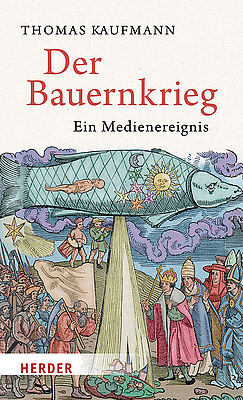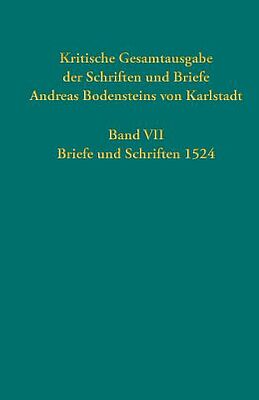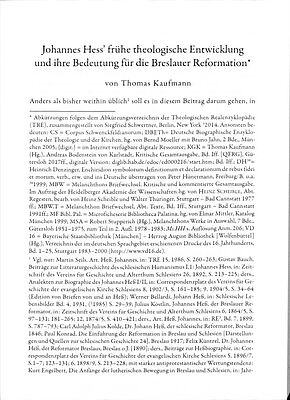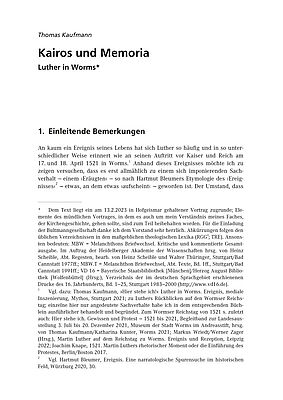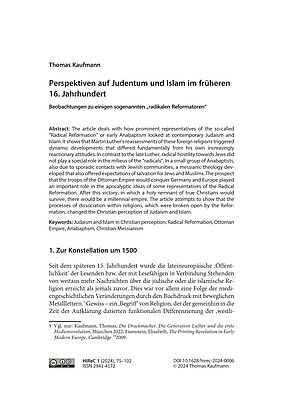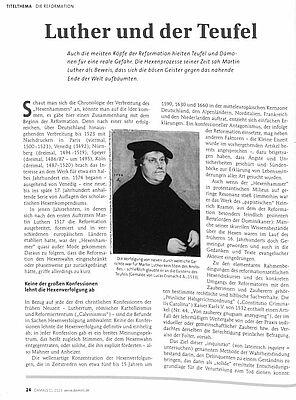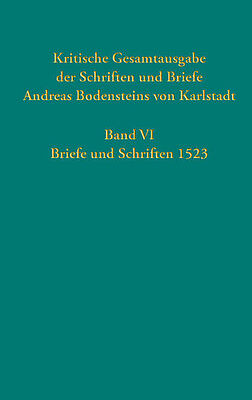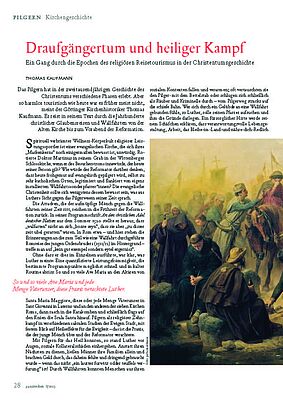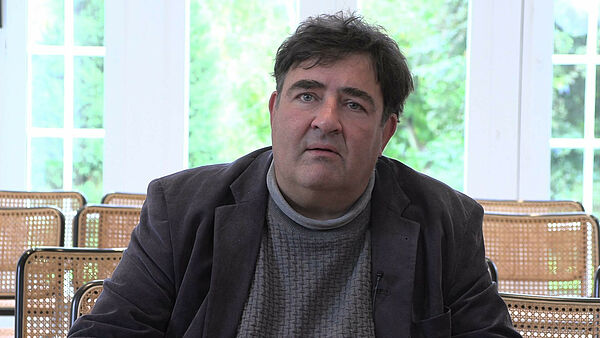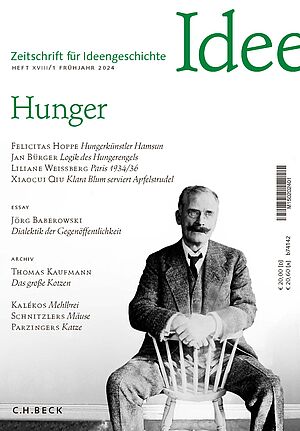
Thomas Kaufmann, Dr. theol.
Professor für Kirchengeschichte
University of Göttingen
Geboren 1962 in Cuxhaven, Deutschland
Studium der Theologie und Geschichte in Münster, Tübingen und Göttingen
Project
Der „deutsche Bauernkrieg“ – Eine Geschichte frühneuzeitlicher Publizistik
Im Zentrum meiner Forschungen wird der „Bauernkrieg“ der Jahre 1524/25 stehen, ein Ereignis, dem nicht nur in der zeitgenössischen Öffentlichkeit, sondern auch in der Retrospektive eine umfassende Aufmerksamkeit zuteilwurde. Manches spricht dafür, dass der Publizistik eine entscheidende Bedeutung bei der Entstehung dieser komplexen Aufstandsbewegung zukam und dass es eben dieser Aspekt war, der sie von älteren Bauernaufständen des späten 15. und des frühen 16. Jahrhunderts unterschied. Das Ziel der geplanten Darstellung besteht darin, den Gesamtzusammenhang des Bauernkriegs aus einer medialen Perspektive zu rekonstruieren. Dabei sollen neben Texten aller Art auch Bilder eine zentrale Rolle spielen. Insbesondere die Frage, inwiefern die Publikationen ihrerseits Handlungen evoziert und zu Polarisierungen geführt haben, wird eine wichtige Rolle spielen. Zugleich gilt es natürlich auch, die den bäuerlichen Kulturen eigenen Medien konstitutiv in die Perspektive einzubeziehen. Eine aus meiner Sicht bisher nicht befriedigend geklärte Aufgabe besteht sodann darin, den Zusammenhang des Bauernkriegs mit der Reformation zu beschreiben. Dabei gehe ich davon aus, dass die insbesondere von Luthers Publikationen ausgehenden Impulse weitaus wirksamer gewesen sind, als es im Lichte der Verwerfungen des Jahres 1525 und der konfessionellen Memoria angemessen erschien.Lektüreempfehlung
Kaufmann, Thomas. Universität und lutherische Konfessionalisierung. Gütersloh: Gütersloher Verlagshaus, 1997.
–. Luthers Juden. 3., durchges. Aufl. Stuttgart: Reclam, 2017.
–. Die Mitte der Reformation: Eine Studie zu Buchdruck und Publizistik im deutschen Sprachgebiet, zu ihren Akteuren und deren Strategien, Inszenierungs- und Ausdrucksformen. Tübingen: Mohr Siebeck, 2019.
Colloquium, 04.04.2023
The Peasants’ War (1525) – a media event
The “Peasants’ War” is considered a central event in German history. In view of many forgotten wars and the small number of its victims, about 100,000 peasants, compared with the proportions of the 19th and 20th centuries, interest in this war is not immediately understandable. It is based on the controversial interpretation it received, mainly as a result of Friedrich Engels’ study “Der deutsche Bauernkrieg” (1st ed. 1850; 2nd ed. 1870). Engels interpreted the Peasants’ War as a revolution in which peasants and urban lower classes cooperated and fundamentally attacked the feudal order. He considered the theologian Thomas Müntzer to be the leader of the peasants. Luther, on the other hand, represented an early middle class that had allied with the nobility against the peasants. This narrative and its contestation continued to dominate the interpretations that were controversial between historians of the two German states between 1949 and 1989. In this respect, the interpretation of the Peasants’ War is part of a divided German-German culture of remembrance.
In the context of the book project I am pursuing at Wiko, I am reconstructing the Peasants’ War as a phenomenon of publicity. Unlike the previous peasant revolts of the late 15th and early 16th centuries, book printing played a role in 1525. A major reason for this is that a changed image of the peasant had become established in print, art, and literature in the decades before. Then the peasants themselves – or actors acting as agents of their interests – made use of the printing press. Starting in Upper Swabia, these publications established a communicative connection between different regions in the Holy Roman Empire. The Twelve Articles of All Peasantry, to my knowledge the most widely printed pamphlet of the Reformation period, played a central role. Those peasant communities that entered into open conflict with their particular authorities had subscribed to this programmatic text. By making the distinctive claim that it spoke for the Empire’s entire peasantry, it created, in a sense, what it claimed to represent. However, there is reason to doubt that the Twelve Articles were directly related to the peasantry. Because of the publicity, the dynamics of the conflict took on a life of their own. Thus, the Peasants’ War probably became the first military conflict to be triggered and accompanied by the printing press.
Publications from the Fellow Library
Kaufmann, Thomas ([Gütersloh], 2024)
Kritische Gesamtausgabe ... ; Band 7 ; Briefe und Schriften 1524 Kritische Gesamtausgabe der Schriften und Briefe Andreas Bodensteins von Karlstadt ; Band 7
Kaufmann, Thomas (Leipzig, 2024)
Kairos und Memoria : Luther in Worms
Kaufmann, Thomas (Freiburg, 2024)
Der Bauernkrieg : ein Medienereignis
Kaufmann, Thomas (Tübingen, 2024)
Kaufmann, Thomas (Zürich, 2023)
Kaufmann, Thomas (2023)
Johannes Hess' frühe theologische Entwicklung und ihre Bedeutung für die Breslauer Reformation
Kaufmann, Thomas (2023)
Kaufmann, Thomas (Frankfurt, Main, 2023)
Kaufmann, Thomas ([Gütersloh], 2023)
Kritische Gesamtausgabe ... ; Band 6 ; Briefe und Schriften 1523 Kritische Gesamtausgabe der Schriften und Briefe Andreas Bodensteins von Karlstadt ; Band 6
Kaufmann, Thomas (Oxford, 2023)
The saved and the damned : a history of the reformation Erlöste und Verdammte
Made at Wiko 08/12/24
Made at Wiko 07/24/24
Made at Wiko 03/22/24
Made at Wiko 02/23/24
Made at Wiko 11/09/23
Made at Wiko 10/20/23
Made at Wiko 09/27/23
Made at Wiko 08/01/23
Lectures & Keynotes 12/06/22

